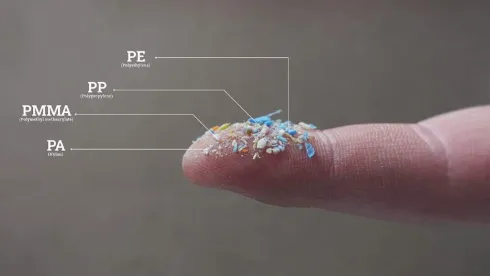The U.S. Environmental Protection Agency (EPA) announced on June 15, 2023, that it will issue proposed significant new use rules (SNUR) under the Toxic Substances Control Act (TSCA) for 18 chemicals made from plastic waste-derived feedstocks. According to EPA, the proposed SNURs would require notification to and review by EPA before these fuels could be made using plastic waste-derived feedstocks that contain impurities like per- and polyfluoroalkyl substances (PFAS), heavy metals, dioxins, bisphenols, and flame retardants. EPA notes that the proposed SNURs “follow the Agency’s commitment in the draft National Strategy to Prevent Plastic Pollution to ensure that feedstocks made from plastic waste do not contain impurities and are part of EPA’s overall efforts to reduce plastic pollution.” Publication of the proposed SNURs in the Federal Register will begin a 30-day public comment period.
EPA states that in January 2022, it announced “a new effort to standardize the review of a growing number of applications for new transportation fuels made by mixing a small amount of bio-or waste-based feedstock oils into a much larger amount of petroleum-based oils, to make new chemical(s) during the refining process.” EPA assessed the 18 chemicals subject to the proposed SNURs under this effort and issued consent orders outlining the restrictions that must be followed for the companies to make them. EPA notes that to date, it has not received notices of commencement for any of the 18 chemicals, meaning the companies have not started manufacturing them yet.
According to EPA, it reviewed and approved the plastic-based feedstocks used to make these fuels in 2015 and 2019. At the time they were approved, the companies provided some data on impurities, and these data showed there were no impurities of concern. In one case, EPA required some additional testing to prove no dioxins were being formed as a result of the pyrolysis process. EPA states that it “knew less about impurities that may be included in plastic-based feedstocks in 2015 and 2019 than it does today,” however. As a result, the proposed SNURs would require notification to and review by EPA before the manufacturing or processing of the chemicals using waste-derived feedstocks that contain any amount of the following: heavy metals (e.g., arsenic, cadmium, chromium VI, lead, and mercury), dioxins, phthalates, PFAS, polybrominated diphenyl ethers (PBDE), alkylphenols, perchlorates, benzophenone, bisphenol A (BPA), organochlorine pesticides (OCP), ethyl glycol, methyl glycol, or N-methylpyrrolidone (NMP). EPA notes that this requirement “ensures fuels could not be lawfully manufactured or processed using waste-derived feedstocks containing these impurities without additional Agency review.” Future consent orders for any new plastic waste-derived feedstocks would also contain requirements to address this issue.
EPA states that additionally, the proposed SNURs would ensure the safety requirements specified in the consent orders for the 18 chemicals apply to all companies that want to manufacture them and would require companies to notify EPA before making, importing, or processing these chemicals for uses other than those listed in the consent orders. In a separate rulemaking, EPA will propose SNURs for the chemicals made using bio-based feedstocks.
Additionally, once EPA publishes the proposed SNURs in the Federal Register, its risk assessment of the 18 chemicals subject to the proposed SNURs will be available in docket EPA-HQ-OPPT-2023-0245 at www.regulations.gov. EPA will also make available a “Risk Summary and Characterization” of the 18 new chemicals to explain better the risk assessment by clarifying how EPA developed the hazard and exposure assessments and to characterize better the risks found.
EPA Will Propose SNURs for 18 Chemicals Made from Plastic Waste-Derived Feedstocks
Friday, June 16, 2023
Current Public Notices
Published: 16 September, 2025
Published: 15 September, 2025
Published: 15 September, 2025
Published: 9 September, 2025
Published: 9 September, 2025
Published: 8 September, 2025
Published: 4 September, 2025
Published: 28 August, 2025
Published: 25 August, 2025
Published: 22 August, 2025
Published: 20 August, 2025
Published: 20 August, 2025
Published: 18 August, 2025
Published: 11 August, 2025
Published: 8 August, 2025




 />i
/>i

